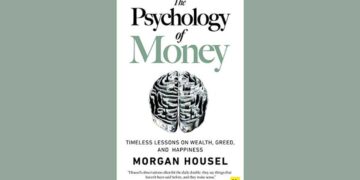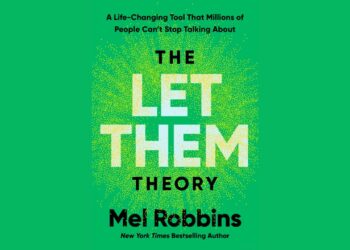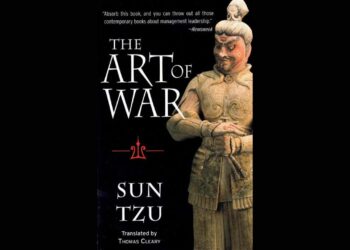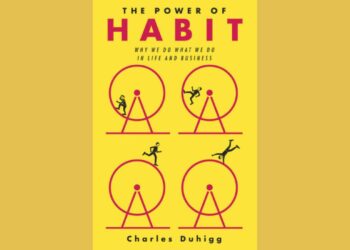Table of Contents
- Listen Audio Summary
- Chapter-by-Chapter Summary
- Introduction: The Greatest Show On Earth
- Chapter 1: No One’s Crazy
- Chapter 2: Luck & Risk
- Chapter 3: Never Enough
- Chapter 4: Confounding Compounding
- Chapter 5: Getting Wealthy vs. Staying Wealthy
- Chapter 6: Tails, You Win
- Chapter 7: Freedom
- Chapter 8: Man in the Car Paradox
- Chapter 9: Wealth is What You Don’t See
- Chapter 10: Save Money
- Chapter 11: Reasonable > Rational
- Chapter 12: Surprise!
- Chapter 13: Room for Error
- Chapter 14: You’ll Change
- Chapter 15: Nothing’s Free
- Chapter 16: You & Me
- Chapter 17: The Seduction of Pessimism
- Chapter 18: When You’ll Believe Anything
- Chapter 19: All Together Now
- Chapter 20: Confessions
- Quotes from the Book
- Short Review
- Who Should Read This Book?
- FAQs for the Book
Book Summary in One Sentence: “The Psychology of Money” argues that financial success is less about what you know and more about how you behave, emphasizing timeless lessons on wealth, greed, and happiness.
Listen Audio Summary
Chapter-by-Chapter Summary
Introduction: The Greatest Show On Earth
The introduction sets the stage by contrasting two real-life stories: a tech executive who squandered his fortune despite his genius and a janitor named Ronald Read who amassed an $8 million fortune through patient saving and investing. Housel’s core premise is that financial success is not a hard science but a soft skill. How you behave is more important than what you know. Intelligence doesn’t guarantee success; in fact, a genius who loses control of their emotions can be a financial disaster. Conversely, ordinary people with no financial education can become wealthy if they possess certain behavioral skills. Finance is often taught like physics, with rules and laws, but it’s more like psychology, full of emotions and nuances. Money affects everyone, and understanding its psychology provides powerful insights into human behavior.
Chapter 1: No One’s Crazy
This chapter explores the idea that our personal experiences with money shape our financial decisions, and what seems crazy to one person may make perfect sense to another. Everyone’s experience with money is a tiny fraction of what has happened in the world, yet it forms the basis of their financial worldview. People from different generations, with different backgrounds and experiences, learn different lessons about money. For example, someone who grew up during the Great Depression will have a vastly different perspective on risk than a tech worker from the dot-com bubble. Housel emphasizes that no amount of studying can replicate the emotional impact of personal experience. This is why equally smart people can disagree on financial matters. He concludes by stating that we’re all relatively new to the modern financial system, so it’s natural that we make what might seem like “crazy” decisions.
Chapter 2: Luck & Risk
Luck and risk are two sides of the same coin; both are forces beyond our individual control that significantly impact our financial outcomes. Housel uses the story of Bill Gates to illustrate the role of luck. Gates had access to a high school computer, a one-in-a-million opportunity that was crucial to the founding of Microsoft. In contrast, Gates’s classmate, Kent Evans, who was equally talented, died in a mountaineering accident—a one-in-a-million risk. This highlights that for every success story, there’s often a story of someone equally skilled who was hit by the unfortunate side of risk. Housel argues that we should be careful when judging both our own success and the success of others, as it’s never as good or as bad as it seems. Instead of focusing on extreme individual examples, we should look for broad patterns of success and failure.
Chapter 3: Never Enough
This chapter delves into the destructive nature of greed and the importance of knowing when you have “enough.” Housel tells the stories of Rajat Gupta, a former McKinsey CEO, and Bernie Madoff, a successful and legitimate businessman, both of whom were already incredibly wealthy but threw it all away in pursuit of more. Their downfall was a lack of a sense of “enough.” The social comparison treadmill is a significant problem; there’s always someone with more, so it’s a battle that can’t be won. The hardest financial skill is getting the goalpost to stop moving. Housel argues that there are many things in life—reputation, freedom, family, friends, and happiness—that are never worth risking for potential financial gain. The key is to know when to stop taking risks that could harm these invaluable aspects of your life.
Chapter 4: Confounding Compounding
The power of compounding is often underestimated because our minds are not built to handle exponential growth. Housel uses the example of ice ages to illustrate how small, consistent changes can lead to extraordinary results over time. He then applies this to Warren Buffett’s wealth. While Buffett is a phenomenal investor, the real key to his success is that he has been investing for three-quarters of a century. The majority of his fortune was accumulated after his 65th birthday. Housel argues that good investing isn’t about earning the highest returns, but about earning pretty good returns that can be repeated for the longest period. This is when compounding works its magic.
Chapter 5: Getting Wealthy vs. Staying Wealthy
Getting wealthy and staying wealthy are two different skills. Getting money often requires taking risks and being optimistic, while keeping it requires humility and a fear that what you’ve made can be taken away. Housel contrasts the stories of Jesse Livermore and Abraham Germansky, both of whom were good at getting wealthy but bad at staying wealthy. The cornerstone of money success is survival. A survival mentality is key because few gains are worth wiping yourself out for, and compounding only works if you can give your assets years to grow. Planning is important, but the most crucial part of any plan is to plan on the plan not going according to plan. A “barbelled personality”—optimistic about the future but paranoid about what will prevent you from getting there—is vital.
Chapter 6: Tails, You Win
This chapter explains the concept of “long tails,” where a small number of events account for the majority of outcomes. You can be wrong half the time and still make a fortune. Housel uses the example of the art market, where a few masterpieces drive the returns of a collection. The same is true for venture capital and even the stock market as a whole, where a small percentage of companies are responsible for the majority of the market’s returns. This means it’s normal for many of our investments and business ideas to fail. The key is to have a few big winners. As an investor, your success will be determined by how you respond during the small number of days when everyone else is going crazy.
Chapter 7: Freedom
The highest dividend money pays is the ability to control your time. Having the freedom to do what you want, when you want, with whom you want, is priceless. Housel cites the work of psychologist Angus Campbell, who found that a strong sense of controlling one’s life is a more dependable predictor of happiness than any of the objective conditions of life. Money’s greatest intrinsic value is its ability to give you control over your time. We’ve used our increasing wealth to buy bigger and better stuff, but we’ve often given up control over our time in the process. More of us now have “thinking” jobs that never really end, which contributes to stress and a feeling of being constantly “on.”
Chapter 8: Man in the Car Paradox
This short chapter highlights the paradox that no one is as impressed with your possessions as you are. When we see someone driving a nice car, we don’t think, “Wow, that person is cool.” We think, “Wow, if I had that car, people would think I’m cool.” People want wealth to signal that they should be liked and admired, but in reality, others often use your wealth as a benchmark for their own desires. Humility, kindness, and empathy will bring you more respect than material possessions.
Chapter 9: Wealth is What You Don’t See
Wealth is the money you don’t spend. It’s the financial assets that haven’t been converted into visible things. Richness is a current income, which is easy to spot. Wealth is hidden and is about having options and flexibility. Housel draws an analogy to diet and exercise: burning calories is the rich part, while the wealth is the weight you don’t gain. The world is full of people who look modest but are wealthy, and people who look rich but are on the verge of insolvency.
Chapter 10: Save Money
Building wealth has more to do with your savings rate than your income or investment returns. The value of wealth is relative to what you need. A high savings rate means having lower expenses, which makes your savings go further. The most powerful way to increase your savings is to raise your humility and care less about what others think of you. You don’t need a specific reason to save; saving for saving’s sake is a hedge against life’s inevitable surprises. Savings give you options, flexibility, and control over your time, which are invaluable.
Chapter 11: Reasonable > Rational
When it comes to financial decisions, aiming to be reasonable is better than trying to be coldly rational. We are emotional beings, not spreadsheets. Rational strategies can be unreasonable in practice. Housel uses the example of a study that showed a leveraged lifecycle fund would produce higher returns, but no normal person could emotionally handle the volatility. The best strategy is one you can stick with. Being reasonable and comfortable with your financial plan is more important than having a mathematically optimal one that you’ll abandon at the first sign of trouble.
Chapter 12: Surprise!
History is the study of change, yet it’s often used as a map of the future. The most important events that move the needle in the economy and the stock market are the big, surprising outliers. History can be a misleading guide to the future because it doesn’t account for structural changes in the world. The further back you look in history, the more general your takeaways should be. General human behaviors like greed and fear are stable, but specific trends and patterns are not.
Chapter 13: Room for Error
The most important part of any plan is to plan on it not going according to plan. Margin of safety, or room for error, is the only effective way to navigate a world governed by odds, not certainties. We should avoid single points of failure. In personal finance, a single point of failure is a sole reliance on a paycheck with no savings. Saving for things you can’t predict or imagine is one of the best defenses against life’s inevitable surprises.
Chapter 14: You’ll Change
Long-term planning is difficult because our goals and desires change over time. People are poor forecasters of their future selves. We should avoid the extreme ends of financial planning, as the benefits of extremes tend to wear off, while the downsides become enduring regrets. We should also accept the reality of changing our minds and not be beholden to “sunk costs”—decisions made by a past version of ourselves.
Chapter 15: Nothing’s Free
Everything has a price, but not all prices appear on labels. The price of successful investing is often volatility, fear, doubt, uncertainty, and regret. We should view these not as fines, but as fees—the cost of admission for the chance of great returns. Trying to get the returns without paying the price is a recipe for disappointment.
Chapter 16: You & Me
Beware of taking financial cues from people playing a different game than you are. Investors have different goals and time horizons. A price that seems ridiculous to a long-term investor might make perfect sense to a day trader. Bubbles form when the momentum of short-term returns attracts a critical mass of short-term traders. The damage is done when long-term investors start taking their cues from them. It’s important to define the game you’re playing and stick to it.
Chapter 17: The Seduction of Pessimism
Pessimism often sounds smarter and is more seductive than optimism. This is partly because losses loom larger than gains, and setbacks happen more quickly than progress. However, optimism is the most reasonable bet for most people because the world tends to get better over time. Real optimism is not complacency; it’s a belief that the odds of a good outcome are in your favor over time, despite setbacks.
Chapter 18: When You’ll Believe Anything
This chapter discusses the power of stories over statistics. We all have an incomplete view of the world and use stories to fill in the gaps. The more you want something to be true, the more likely you are to believe a story that overestimates the odds of it being true. These “appealing fictions” are powerful in finance, where the stakes are high and control is limited. The illusion of control is more persuasive than the reality of uncertainty, so we cling to stories that make us feel in charge.
Chapter 19: All Together Now
This is a summary chapter that reiterates the key lessons of the book: find humility, have less ego, manage your money in a way that helps you sleep at night, increase your time horizon, be okay with things going wrong, save, define the cost of success, have room for error, avoid extremes, respect risk, define your game, and respect the messiness and diversity of financial perspectives.
Chapter 20: Confessions
Housel shares his own personal finance strategy, emphasizing that there’s no single right answer, only what works for you. He and his wife prioritize financial independence and a high savings rate. They live below their means, own their house without a mortgage (a decision he calls financially suboptimal but psychologically beneficial), and invest in low-cost index funds. Their goal is to maximize their ability to sleep well at night, which they see as the ultimate mastery of the psychology of money.
Quotes from the Book
- “Doing well with money has a little to do with how smart you are and a lot to do with how you behave.”
- “Your personal experiences with money make up maybe 0.00000001% of what’s happened in the world, but maybe 80% of how you think the world works.”
- “The hardest financial skill is getting the goalpost to stop moving.”
- “Spending money to show people how much money you have is the fastest way to have less money.”
- “Good investing is not necessarily about making good decisions. It’s about consistently not screwing up.”
- “Controlling your time is the highest dividend money pays.”
- “Optimism sounds like a sales pitch. Pessimism sounds like someone trying to help you.”
Short Review
“The Psychology of Money” is a refreshing and accessible book that shifts the focus of financial success from complex calculations and market predictions to human behavior. Morgan Housel’s writing is clear, engaging, and filled with compelling stories that illustrate his points effectively. The book’s strength lies in its timeless wisdom and its emphasis on the “soft skills” of finance, which are often overlooked. It’s not a “how-to” guide for getting rich quick, but rather a profound exploration of our relationship with money and how our psychology drives our financial decisions. This book offers a valuable perspective that can help readers not only improve their finances but also find more contentment in their lives.
Who Should Read This Book?
This book is highly recommended for anyone who wants to develop a healthier and more effective relationship with money, regardless of their age, income, or financial expertise.
- Beginners: It provides a solid foundation for thinking about money in a way that is both practical and psychologically sound.
- Experienced Investors: It offers a valuable reminder that behavior is often more important than technical skill.
- Young Adults: The lessons on compounding, saving, and the importance of time are particularly relevant for those just starting their financial journeys.
- Anyone Feeling Stressed About Money: The book’s focus on reasonableness over rationality and the importance of “enough” can be a powerful antidote to financial anxiety.
FAQs for the Book
1. Is this a book about how to invest in the stock market? No, not directly. While it touches on investing principles, its primary focus is on the psychological and behavioral aspects of money management, which are applicable to all areas of personal finance, not just the stock market.
2. What is the single most important takeaway from the book? The most important takeaway is that your behavior with money is more important than your intelligence or financial knowledge. Consistently good behavior will trump occasional flashes of brilliance.
3. Does the book offer specific financial advice? The book avoids giving prescriptive advice like “buy this stock” or “invest this much.” Instead, it provides a framework for thinking about money that allows you to make better decisions for your own unique circumstances.
4. How is this book different from other personal finance books? Many personal finance books focus on the “what” and “how” of money (budgeting, investing strategies, etc.). “The Psychology of Money” focuses on the “why”—why we make the financial decisions we do and how our psychology can work for or against us.
5. Is the book easy to read for someone with no financial background? Yes, the book is written in a very clear and accessible style, using stories and anecdotes rather than jargon and complex formulas. It’s an excellent read for those with no prior financial knowledge.




















